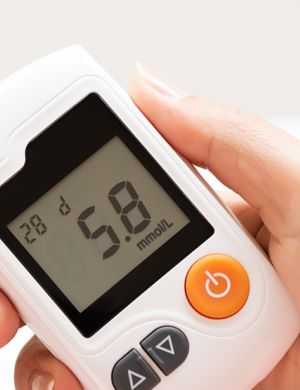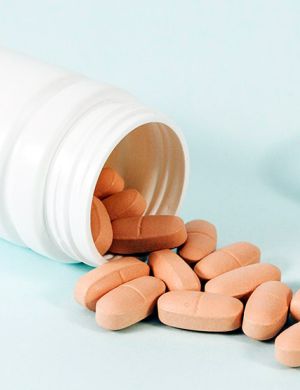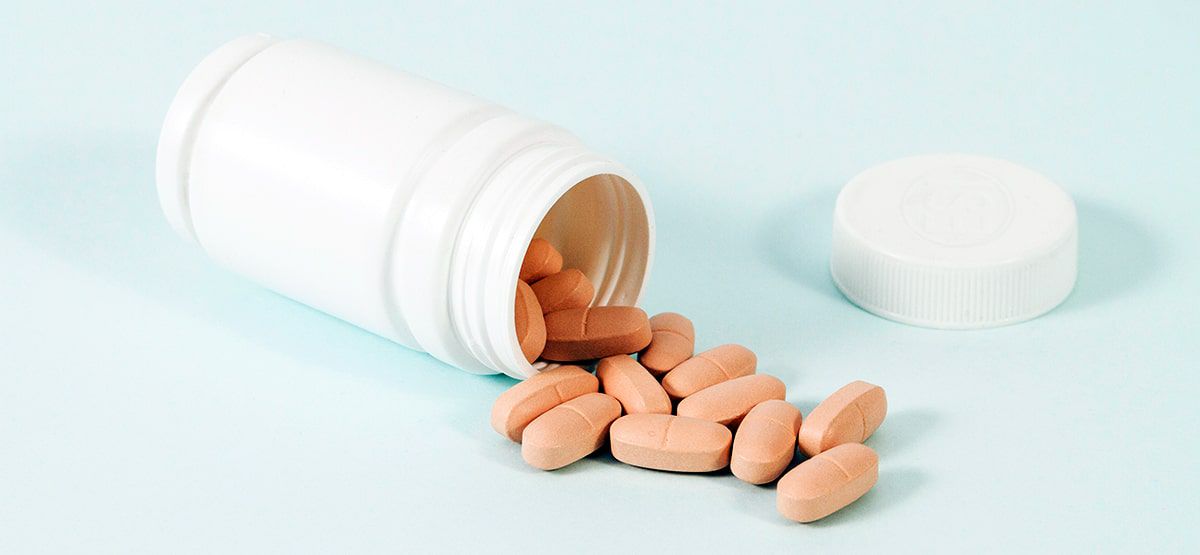
Pharma – Asia, S America, MENA, ROW Regulatory News – Oct 2025
ARGENTINA
ANMAT Unveils QR Code System for Drug Leaflet Updates
On October 16, 2025, ANMAT presented a new digital system to Argentina’s pharmaceutical chambers for generating QR codes on drug packaging. The system enables real-time access to updated package inserts, enhancing traceability and transparency. Provision 3924/2025 mandates QR codes on synthetic and semi-synthetic medicinal specialties. The tool, available at ifas.anmat.gob.ar, supports regulatory modernization and safer communication with healthcare professionals and patients. Industry representatives welcomed the initiative, praising its role in digitizing regulatory processes and improving public health information access.
ANMAT Updates GCP Regulations for Clinical Pharmacology Studies
On October 9, 2025, ANMAT announced Provision No. 7516/25, modernizing the Good Clinical Practices (GCP) framework for drug registration studies in Argentina. Effective December 1, the new regime aligns with ICH E6(R3) standards and applies to Phase I–III trials involving new indications, dosages, or formulations. It strengthens oversight, data traceability, and subject safety. The update reflects ANMAT’s growing role in global regulatory harmonization, following its 2024 membership in ICH. These changes aim to improve public health, elevate treatment standards, and enhance Argentina’s participation in international research.
AUSTRALIA
TGA Updates Testing Regulations for Therapeutic Goods
Effective October 1, 2025, the Therapeutic Goods Legislation Amendment replaces Part 5 of the 1990 Regulations, streamlining procedures for testing therapeutic goods. The update enhances clarity, flexibility, and alignment with modern testing methods. It authorizes APS-nominated analysts to conduct testing and issue certificates documenting results. These changes follow a public consultation held mid-2024, which received broad support. Transitional arrangements ensure continuity for goods obtained before the amendment. The reform strengthens TGA’s regulatory framework to better safeguard Australian consumers.
Public Consultation Open on Updates to GMP Guidelines
On October 7, 2025, PIC/S launched a public consultation on revisions to Chapter 1 – Pharmaceutical Quality System of its Guide to GMP for Medicinal Products. The updates reflect changes from ICH Q9(R1) on Quality Risk Management and offer enhanced guidance for Product Quality Reviews. Developed jointly with EMA inspectors, the revised chapter aims to improve regulatory clarity and manufacturing standards. As the PIC/S Guide is embedded in Australian law, input from affected manufacturers is vital. Stakeholders can submit feedback via their organizations or directly through the EU Survey tool.
TGA Targets Unlawful Vape Advertising on Delivery Platforms
On October 29, 2025, the Therapeutic Goods Administration (TGA) issued a warning to online delivery services over illegal vape promotions. Following complaints, the TGA worked with two major platforms to remove non-compliant content. Under Australian law, vapes may only be sold through pharmacies and must not be advertised to the public. In 2024–25, the TGA removed over 13,700 online ads, including 8,500 related to vaping. Non-compliance can lead to fines up to $23.1 million or 7 years in jail. The public is urged to report violations and seek professional help for smoking cessation.
TGA Website Gets a User-Friendly Makeover
On October 30, 2025, the Therapeutic Goods Administration (TGA) rolled out major updates to its website, improving navigation and accessibility. Key changes include a streamlined primary navigation with grouped content under Safety, Product Regulation, Resources, Business Services, and Home. New mega menus offer quick access to popular pages. A dedicated What’s Newsection now tracks all recent updates in one place. Users are advised to update bookmarks as some content has moved. These enhancements are based on user feedback and testing. TGA welcomes further input to keep improving the site experience.
BRAZIL
Anvisa Adopts e-CTD for Drug Submissions
On October 1, 2025, Anvisa signed a contract to implement the electronic Common Technical Document (e-CTD) system, aligning Brazil with global regulatory standards. The e-CTD enables structured, digital submission of drug dossiers, improving traceability, review speed, and data sharing. It complements international standards like IDMP and HL7 FHIR, enhancing interoperability across health systems. This move supports Anvisa’s modernization strategy amid rising workloads and reduced staffing. The adoption of e-CTD is expected to accelerate approvals and facilitate global collaboration.
Anvisa Announces Schedule for New Import Process Integration
On October 2, 2025, Anvisa released the phased schedule for integrating regulated imports into the New Import Process (NPI) via the Single Window for Foreign Trade (Pucomex). The transition involves adopting the Single Import Declaration (Duimp) and Product Catalog, replacing the LI/LPCO system. Key dates include medicines, and medical devices. During the transition, importers may choose either process but must prepare for full migration. Anvisa emphasizes gradual, secure implementation to support trade efficiency.
Public Consultation Open on Adaptive Designs in Clinical Trials
On October 22, 2025, Anvisa launched Call for Proposals 15/2025 to gather feedback on the ICH E20 Guideline covering adaptive designs in confirmatory clinical trials. Contributions are open until November 30, 2025, via a designated electronic form. The guideline outlines principles for pre-planned trial modifications based on interim data, aiming to improve flexibility and reliability. Stakeholders—including sponsors, CROs, statisticians, and patients—are encouraged to participate. Anvisa’s adoption of this guide will support innovative trial designs and harmonize Brazil’s standards with global practices.
Anvisa Seizes Counterfeit Batches of Cancer Drugs
On October 21, 2025, Anvisa ordered the seizure of counterfeit batches of Keytruda (lots SO48607 and Y019148) and Avastin (batch H0386H05). The Keytruda batches were distributed by LAF MED, whose license was revoked following a joint operation in Ceará. Roche identified inconsistencies in the Avastin batch, confirming it as counterfeit. All affected products are banned from sale, use, and distribution. These counterfeit drugs pose serious risks due to unknown content and origin. Anvisa urges healthcare professionals and patients to avoid these batches and report any concerns to the manufacturers.
CHINA
China and Brazil Deepen Pharmaceutical Regulatory Cooperation
On October 13, 2025, Li Li, Commissioner of China’s National Medical Products Administration (NMPA), met with Brazil’s Minister of Health, Alexandre Padilha, in Beijing to reinforce collaboration in pharmaceutical regulation. The meeting highlighted China’s advancements in drug safety, smart regulation, and international harmonization, while Brazil shared its healthcare development plans and drug approval reforms. Both parties agreed to deepen cooperation in drug review, regulatory coordination, and industry innovation to promote sustainable development and improve public health outcomes in both nations.
EGYPT
Egypt Joins WHO’s Global Clinical Trials Forum
On October 8, 2025, the Egyptian Drug Authority (EDA) announced its membership in the Global Clinical Trials Forum (GCTF), launched by WHO to enhance global clinical research. The Forum supports WHA Resolution 75.8, aiming to strengthen trial infrastructure and international collaboration. EDA’s membership marks a strategic milestone, positioning Egypt as a regional leader in clinical research. The agency will focus on training, digital transformation, and regulatory alignment to ensure high-quality trials. This move reflects Egypt’s commitment to advancing health research and partnering with WHO to improve global preparedness.
EDA Strengthens Oversight of Expired Drug Withdrawal Plan
On October 8, 2025, Dr. Ali Al-Ghamrawy, Chairman of the Egyptian Drug Authority (EDA), met with pharmaceutical distributors to review mechanisms for withdrawing expired pharmaceutical products from the market. The meeting emphasized safe disposal practices and reinforced EDA’s commitment to market stability and public health. Distribution leaders pledged full compliance and support for efficient supply chains. EDA reaffirmed its adherence to international regulatory standards and readiness to take necessary action. This initiative reflects Egypt’s strategic focus on pharmaceutical safety and industry coordination.
EDA Advances Digital Prescription Project with Fixed Egypt
On October 29, 2025, Dr. Ali Al-Ghamrawy, Chairman of the Egyptian Drug Authority (EDA), met with Fixed Egypt and other tech partners to discuss implementation of the Digital Prescription Project. The initiative aims to build a unified digital platform connecting doctors, pharmacists, and patients to ensure safe and efficient drug dispensing. It supports Egypt’s broader digital transformation goals and enhances healthcare service quality. The system will enable intelligent data analysis and real-time monitoring of medicine movement. Stakeholders agreed to maintain close coordination to deliver a globally aligned digital prescription model.
INDIA
CDSCO Issues Directive to Promote Awareness on GST Reduction for Medicines and Devices
The CDSCO has issued a directive to raise public awareness about the recent reduction in GST rates on medicines, pharmaceuticals, and medical devices, effective from September 22, 2025. Internet Pharmacy Associations are urged to promote this change through media advertisements, website banners, and social media campaigns lasting 100 days. Invoices should reflect the GST reduction, and delivery partners are encouraged to support the initiative. Associations must compile and submit campaign visuals to CDSCO HQ. Hashtags and promotional materials have been provided for consistency. This initiative aims to ensure widespread understanding and public benefit.
JAPAN
PMDA’s initiative on electronic data in drug review
The PMDA is advancing drug review by integrating electronic study data and modeling/simulation methods to enhance decision-making. This approach aims to streamline regulatory submissions, improve evidence-based evaluations, and support new guideline development. Recent notifications outline technical requirements and gateway systems for electronic data submissions. FAQs and Q&A documents help clarify procedures for sponsors. As of October 2023, Form A and B are no longer required before submission but remain necessary for consultations. These efforts reflect Japan’s commitment to modern, efficient, and science-driven drug regulation.
JORDON
FDA and USP Host Regional Forum on Pharmaceutical Cooperation
On October 29, 2025, the Food and Drug Administration (FDA) and the United States Pharmacopeia (USP) held a regional forum in Amman, gathering regulatory authorities and pharmaceutical industry leaders. Prof. Dr. Rana Obeidat emphasized regional integration and global alignment in drug and food regulation. Discussions focused on quality, safety, and effectiveness of medicines, expanding cooperation to the food sector, and strengthening vaccine analysis and training programs. USP shared its seven-pillar strategy, including tech innovation and supply chain resilience. Experts explored ways to simplify drug registration and enhance regional collaboration.
Regional Forum Unites Regulators to Advance Drug Quality Standards
On October 29, 2025, the Food and Drug Administration (FDA) and the United States Pharmacopeia (USP) held a regional forum in Amman, gathering regulatory authorities and pharmaceutical industry leaders. Prof. Dr. Rana Obeidat emphasized regional integration and global alignment in drug and food regulation. Discussions focused on quality, safety, and effectiveness of medicines, expanding cooperation to the food sector, and strengthening vaccine analysis and training programs. USP shared its seven-pillar strategy, including tech innovation and supply chain resilience. Experts explored ways to simplify drug registration and enhance regional collaboration.
FDA Strengthens Drug Safety Oversight (Aug 1–Oct 8, 2025)
During this period, the General Food and Drug Administration evaluated 240 Risk Management Plans (RMPs)—a 65% increase—and 25 Periodic Safety Reports (PSURs). Staff also updated 60 drug leaflets, assessed 40 promotional materials, and followed up on 20 drug notifications. Over 400 Adverse Drug Reports (ADRs) were evaluated, with 600 reviewed, raising the VigiLyze database total to 8,400+ reports. Awareness efforts included new materials on IV iron safety and osteonecrosis of the jaw (MRONJ). These actions reflect the FDA’s commitment to patient safety and responsible medicine use.
MALAYSIA
Safety Signal Alert on Doxycycline Linked to Fixed Drug Eruption (FDE)
The NPRA has issued a safety signal alert linking doxycycline to Fixed Drug Eruption (FDE), a recurring skin reaction triggered by re-exposure to the drug. This signal was first raised by India’s CDSCO and validated through global pharmacovigilance data. Malaysia ranked fourth globally in reported FDE cases, with 21 local reports and a significant IC025 value of 2.3. NPRA has directed product holders to update package inserts and consumer leaflets to reflect this risk. Healthcare professionals are advised to monitor patients for FDE symptoms and educate them accordingly. Prompt reporting of adverse events is encouraged. This measure aims to enhance antibiotic safety and patient awareness.
NEW ZEALAND
Medsafe Releases 2024 Adverse Reaction Data
Medsafe published data from the New Zealand Pharmacovigilance Database, detailing 4,585 suspected adverse reaction reports from 2024. Of these, 63.2% were classified as serious, with non-vaccine substances accounting for most serious cases. Reports varied by ethnicity and age, with younger groups showing higher vaccine-related reactions. The most frequently reported substances were the Comirnaty COVID-19 vaccine (409 reports) and iohexol(331 reports). Medsafe advises not to alter medication based on this report and encourages consultation with healthcare professionals.
NIGERIA
NAFDAC Issues Alert on Contaminated Cold Medicines
medicines—COLDRIF, Respifresh TR, and ReLife—linked to child fatalities in India. These products, manufactured by Sresan Pharmaceutical, Rednex Pharmaceuticals, and Shape Pharma, were found to contain Diethylene Glycol (DEG), a toxic substance. CDSCO confirmed production halts and product recalls at implicated sites. The contaminated medicines are commonly used for cold and flu symptoms. Ingestion of DEG can cause severe health effects, NAFDAC warned healthcare providers and the public about three substandard oral liquid including acute kidney injury and death. These products must not be used under any circumstances.
PERU
Market Withdrawal of Ifosbif 1 g Due to Critical Quality Issue
On October 28, 2025, DIGEMID issued Alert No. 122-2025 announcing the withdrawal of batch FMDG5B10 of Ifosbif 1 g (Ifosfamide) injectable powder. The product failed critical quality tests including visible particles, sterility, and reconstituted solution description. Manufactured by United Biotech (India) and distributed by World Drug Pharmaceutical S.A.C., all units of the batch were ordered for removal and destruction. DIGEMID urges healthcare providers and the public to avoid use of this batch. Remaining units may still be in circulation. Full details are available on DIGEMID’s quality control portal.
WHO Reports Contaminated Cold Medicines in India
On October 8, 2025, DIGEMID issued Alert No. 118-2025 following a WHO warning about three contaminated oral liquid medicines—Coldrif, Respifresh TR, and ReLife—linked to child fatalities in India. The products contained toxic levels of diethylene glycol (DEG), a substance that can cause kidney failure and death. Affected batches were manufactured by Sresan Pharmaceutical, Rednex Pharmaceuticals, and Shape Pharma. Indian authorities have suspended production and initiated recalls. DIGEMID confirmed these products are not registered in Peru but urges vigilance, especially in informal supply chains. Public is advised to avoid non-authorized pharmacies.
QATAR
SFDA Unveils AI Model to Predict Drug Shortages
On October 29, 2025, SFDA CEO Dr. Hisham S. Aljadhey launched an AI-powered model to forecast drug shortages in Saudi Arabia. Introduced at the Global Health Exhibition, the system uses advanced algorithms to analyze historical data and generate real-time predictions. It enhances supply chain efficiency and supports timely access to medications. The initiative marks a major advancement in national drug security and aligns with Saudi Vision 2030’s digital transformation goals. SFDA’s innovation strengthens public health and boosts the Kingdom’s global pharmaceutical competitiveness.
SFDA CEO Highlights AI-Driven Future for Drug Regulation
On October 23, 2025, SFDA CEO Dr. Hisham S. Aljadhey affirmed Saudi Arabia’s commitment to integrating artificial intelligence into drug regulatory practices. Speaking at the ICMRA Summit in Amsterdam, he co-chaired a session on AI in global regulation with MHRA’s Lawrence Tallon. Discussions focused on governance principles, implementation challenges, and data-driven decision-making. The initiative aligns with Saudi Vision 2030’s innovation goals and aims to enhance drug safety and quality. The summit fostered international collaboration among regulatory bodies to advance global standards and strengthen public health systems.
SFDA CEO Strengthens Global Drug Safety Ties at ICMRA Summit
On October 21, 2025, SFDA CEO Dr. Hisham S. Aljadhey met with international counterparts during the ICMRA Summit in Amsterdam. Key meetings included ANVISA’s Dr. Leandro Safatle, EDA’s Dr. Ali El-Ghamrawy, and MHRA’s Lawrence Tallon. Discussions focused on enhancing cooperation in drug safety, quality, and efficacy. AI-driven regulatory innovation and shared best practices were central themes. These efforts support Saudi Arabia’s Vision 2030 health transformation goals. ICMRA continues to foster global collaboration among medicine regulatory authorities.
SINGAPORE
HSA Streamlines Drug Application Review Times
Singapore’s Health Sciences Authority (HSA) reported efficient screening timelines for new and major variation applications. The mean screening time was 34.5 WD for NDAs, 35.6 WD for GDAs, and 23.1 WD for MAVs—well within the 50 WD target. Applicant response times averaged 31.8 WD (NDA), 35.9 WD (GDA), and 10.9 WD (MAV). These figures reflect strong collaboration between HSA and industry stakeholders. Continued improvements in regulatory efficiency support faster access to safe, effective medicines.
Update on Reclassified Medicines in Singapore
The Health Sciences Authority (HSA) has reclassified Carin Tablet 10mg (Loratadine) from Pharmacy-Only (P)to General Sale List (GSL) as of 8 September 2025. This change reflects its safety profile for self-treatment of common allergic symptoms. GSL medicines can be sold by any retailer and are suitable for self-limiting conditions. Singapore’s forensic classification system includes POM, P, and GSL categories based on access control and safety. Pharmacists must still record details when dispensing P medicines. Consumers can use Info search to check updated product classifications.
THAILAND
Thai FDA Launches e-Certificate System to Boost Digital Health
On October 24, 2025, the Thai FDA announced the development of an e-Certificate System aligned with the Ministry’s “Doctors Unburdened, People Without Waiting” digital health policy. The system will manage over 500,000 health product certificates annually, streamlining application, verification, and licensing processes. It features e-Signatures and prepares for G2G data exchange to enhance global competitiveness. Integrated with the Mor Prom+ super app, it supports real-time reporting and AI-powered services. Secretary-General Supattra Boonserm emphasized its role in improving service efficiency and driving national growth through innovation.
Don’t miss out! Click here to stay in touch.
Categories
- Biopharma (59)
- Consumer Health (22)
- Cosmetics (11)
- Diagnostics (5)
- Digital Health (8)
- Food (2)
- Medical Device (113)
- OTC (5)
- Regulatory Intelligence (13)
- Standards (41)
Recent Blogs
Get the latest updates from Vistaar

CONNECT WITH US

Let's talk about how Vistaar can help you





